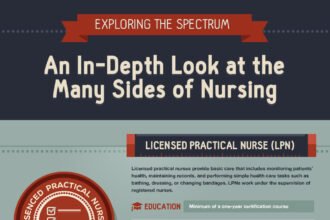The U.S. healthcare system has been under scrutiny for its high costs and limited care. Over the years, coverage has increased, but that doesn’t mean people can afford it. For example, when the Affordable Care Act mandated coverage for drug and alcohol rehabilitation, healthcare costs continued to rise. People who needed rehab the most often had the plans that didn’t cover much of the cost.
Deaths due to drug overdose are still rising today. In 2014, over 25,000 people died from prescription drug overdose, mostly from opioid painkillers. That number steadily increases each year.
Healthcare workers are trained to identify signs from patients who might be at risk for drug addiction, but some people can slip through unnoticed. When the patient comes from an affluent, middle-class, or upper-class family, it’s easy to miss the signs.
Drug addiction doesn’t know class boundaries
Stereotypically, drug addiction is perceived to affect those who come from a disadvantaged upbringing, but the data says otherwise. According to The Atlantic, “abuse of prescription drugs is most common among those who enjoyed the most advantages in adolescence, causing some to rethink the consequences of privilege.”
The article details the story of a man named Evan who became addicted to Oxycontin for two years before seeking help. To pay for his habit, Evan would buy textbooks using his parents’ credit card and sell them for cash. He spent hours sleeping on an air bed in his empty house, waiting for his dealer. He lost all his friends and sold his furniture to pay for his pills.
Evan grew up in an affluent home with parents who loved him. On the outside, his life looked like one to envy. On the inside, he was suffering. Evan felt despondent about life. He had his wisdom teeth taken out, and once he tasted the euphoria induced by the painkillers, he wanted it to last forever.
Evan’s story isn’t unique. Millennials are a stressed-out generation, and they’re afraid to fail. Drugs offer a pleasant escape from the harsh realities of life. For those who need money, selling painkillers commands a sweet price tag on the street, sometimes a dollar per milligram. However, statistics show this epidemic affects white, affluent youth more than any other. Kids born between 1984 and 1990 are 40% more likely to abuse painkillers than any other age group.
Hollywood is catching up with real statistics
The acclaimed Netflix movie 6 Balloons aims to tackle drug addiction by portraying the truth that it can happen to anyone, regardless of class. Most movies portray heroin addicts as creepy, dirty vagrants lurking behind dumpsters in dark alleys. The heroin addict in 6 Balloons comes from an upper-middle-class family. Nothing about his life seems to warrant his addiction, and that’s what makes the movie intriguing.
Painkillers can become a silent addiction
Painkillers are the drug of choice for most addicts because they promise relief from suffering. When the temporary relief wears off, it’s easy to grab another, and another, quickly building a tolerance (and a constant high) that turns into a habit.
When dealing with upper-class, middle-class, and affluent patients, it’s easy to think they’re not at risk for addiction. Overlooking prescription standards might seem harmless, but the truth is, you can’t know for sure if they’re on the verge of developing an addiction. If they’re like Evan, they might have no intention of abusing painkillers but could become addicted to the euphoria they feel from a legitimate prescription.
Regulations aren’t enough to prevent addiction
Stricter regulations from the FDA regarding prescription drug monitoring help restrict the supply of drugs but don’t solve the problem. Healthcare workers have a duty to keep an eye on a patient when they see the signs of addiction, even when that patient doesn’t seem to have a reason for wanting to escape from life.
Addiction is a chronic brain disorder, not simply a behavioral problem. Certain unwanted behaviors are the manifestation of the addiction. The disorder is with the brain. Anyone is susceptible to experiencing an inner, invisible crisis inviting them to escape through the euphoria of drugs.







